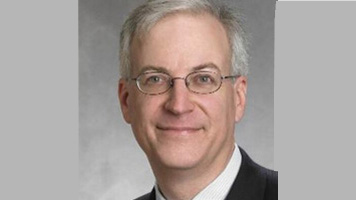Jessell | Let’s Make The Partial FCC Shutdown Permanent

The FCC is in partial shutdown as a result of the fight between Congressional Democrats and President Trump over his Wall and it should stay that way — permanently.
There is simply way too much FCC.
I have regulatory myopia. There may be plenty of things the FCC does for wireless, satellite or cable that is vitally important to them and the public, but I don’t care about any of that.
What I do care about is TV broadcasting, and many FCC regulations of broadcasting are anachronistic, unnecessary and pointless, of little value to anybody.
The permanent partial shutdown I envision would eliminate some of these regs and bar the agency from resurrecting them for all time.
Here are five places to start:
Station ownership — The FCC has expended countless manhours over the decades writing rules limiting ownership and defending them in court. From time to time, it revisits and relaxes the limits, but can never quite bring itself to abolish them all. The shutdown will.
The justification has been localism and diversity. While those arguments may have made sense at one time, they no longer do. Stations don’t need to be told to serve their markets. If they don’t, they will die a natural death. And I think the last thing the nation needs is a government agency promoting diversity of viewpoints. In the Internet Age, America is being choked by viewpoints.
(For all practical purposes, the national ownership cap is already gone. When FCC Chairman Pai restored the UHF discount, he essentially raised the cap from 39% to anywhere from 60% to 78%, depending on a group’s mix of UHF and VHF stations. That’s probably as big as any good company wants to get.)
What’s more, in the management of local ownership, the FCC has become redundant. The Justice Department’s antitrust division has made it clear that it will sue any broadcaster who tries to double up with network affiliates in a market.
Political broadcasting — I suppose it makes sense to keep the rule that says, in effect, that you cannot anchor the evening news while you are running for Congress. But do we really need a rule that says that stations have to make time available for qualified candidates, as if any broadcaster alive would turn away business, even from unqualified ones. Broadcasters have also had a more expansive definition of qualified candidates. It’s one who pays without asking for credit.
All these rules are based on the idea that broadcasters have too much power and that, left unregulated, they would use that power to favor some candidates over others in the acceptance and placement of political ads. I guess that is possible, but where is the evidence that this has ever been a problem?
And don’t get me started on lowest unit charge. Of all media, why is broadcasting the only one that has to give candidates a discount. This regulatory asymmetry is compounded by the complexity of calculating the LUC.
I believe in full disclosure of who is paying for political ads because I believe the public has a right to know who is trying to influence their votes. But this is a job for the FEC, not the FCC.
Children’s television — There may have been a time when these rules made some sense, but not anymore. Most kids have access to programs catering to them on all kinds of other platforms. The rules may make their liberal proponents feel good about themselves, but I’ve seen no evidence they make children smarter. If the proponents want to keep the rules, they should first supply the evidence. Also, compelled speech is unconstitutional.
Indecency — The way things stand, broadcasters may say or show just about anything they want between the hours of 10 p.m. and 6 a.m. — the so-called safe harbor when children are presumably not in the audience. They may be as indecent as they want. They could air the audio of George Carlin’s “seven-dirty-words” routine on a loop if they wanted to and suffer no legal or regulatory consequences.
But they don’t.
Broadcasters, by their very nature, try to keep things relatively clean not eight hours day, but 24 hours a day. It’s good business. They want to maintain a wholesome atmosphere that their advertisers are comfortable with. It’s another thing that sets broadcasting apart from its rivals.
The FCC struggles with indecency, sporadically enforcing continually evolving standards that no one is ever certain of. I think it would come as a relief to the FCC as much as to broadcasters if indecency policing were lifted from the agency’s obligation.
Closed captioning — This is another place where the market can substitute for the FCC. Everything I see in the streaming world is captioned. If broadcasters don’t understand that captions are good business, they deserve to go the way of eight-track tape players and A.B. Dick mimeograph machines.
Now, mind me, I am just calling for a permanent partial shutdown.
The FCC still has some utility.
One job it needs to do is the one that gave rise to in the 1920s — assigning frequencies and signal limits to stations to make sure they don’t interfere with each other and then policing the airwaves to make sure nobody cheats.
Plus, for the benefit of broadcasters, there are a few rules I would like to see the FCC keep in place, including the retrans rules, the syndex and network-non-dupe rules and the prohibition against censoring political ads that incidentally shelters broadcasters from any liability for airing them.
And it’s not like these rules place any operational burden on the FCC. The retrans rules are needed to undergird broadcasters second revenue stream, but they require nothing from the FCC other than allowing broadcasters and MVPDs to freely negotiate. And to enforce the syndex and non-dupe rules, all the FCC has to do is look threatening.
I know that my permanent partial shutdown is a fantasy.
And that’s sort of a shame, isn’t it? Everybody will eventually come around to the understanding that broadcasting is not the dominant force in television anymore and that its regulatory burden is a handicap that threatens the free entertainment and vital public services it provides.
But it will take years and years for FCC policymakers and lawyers to grind through the process of deconstructing the regulatory apparatus that took decades to set up.
That is just the way it works in Washington.
Harry A. Jessell is editor of TVNewsCheck. He can be contacted at 973-701-1067 or here.




































Comments (4)
[email protected] says:
January 7, 2019 at 9:36 pm
Childrem’s Television ~ Other than PBS and FOX (both of which do their own Kid Vid programming), what you have on the Networks (ABC, CBS, CW, NBC) are boring shows done by Litton/Hearst that no one watches. Kids today (and even most adults, although they would deny it) go elsewhere to watch what they really want to watch (which is mostly cartoons) like the Disney channels, the Nickelodeon channels, Universal Kids, PBS Kids, Qubo, and Boomerang. Also, there are times when a network has to preempt due to sport events like the British Open (Golf), the French Open (Tennis), etc., and the network has no place to reschedule the shows. The E/I rules are stupid, and they need to get repealed.
[email protected] says:
January 8, 2019 at 12:16 am
I agree about kids vid rules very outdated. Yeah seems like the FCC doesn’t do anything about indecency other than watchdog orgs that support censorship and file complaints to the FCC and does nothing no fines to broadcasters. If I ever hear The PTC say that there is porn during primetime hours and they are a joke like PETA.
veteranmanager says:
January 16, 2019 at 10:28 am
I share your fantasy, Harry!
tvn-member-3011604 says:
January 17, 2019 at 5:12 pm
As long as the FCC can still process applications, which right now they’re not doing outside of auction-related items, I’m all for it.